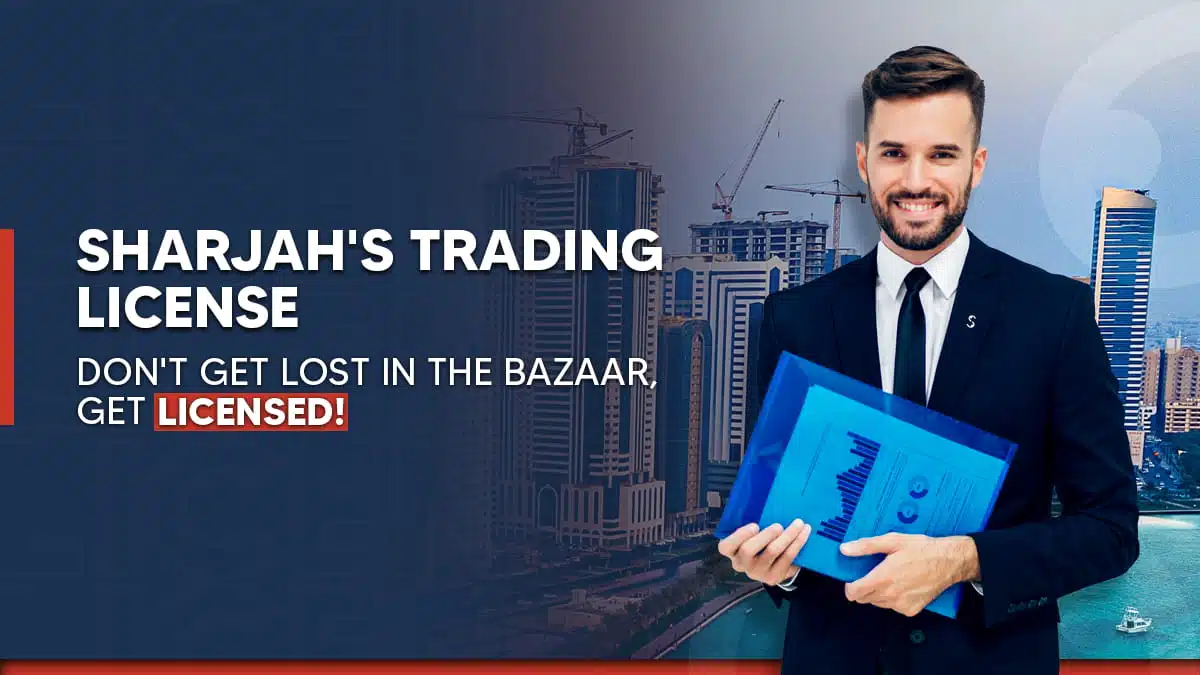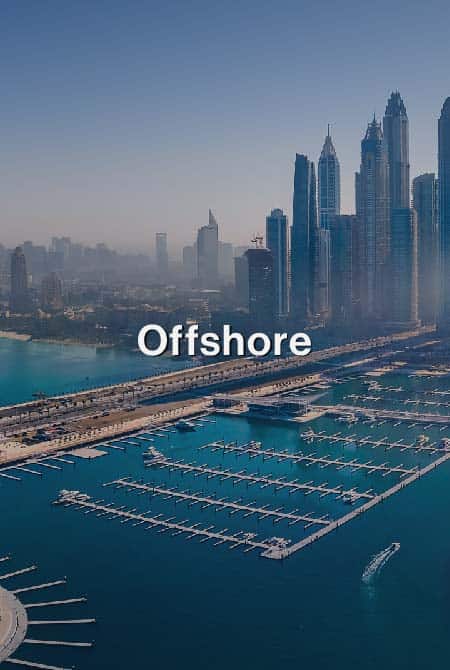The business of import and export has been around for centuries. It is an industry that caters to the demand and supply of goods and commodities across jurisdictions and countries. Therefore, import-export business licenses are much sought after. Import is a product or commodity brought into one country from another country. It is an export in the sending country.
Export is a product or commodity sent out or transferred to another country. It is an import in the receiving country. This exchange of goods and commodities is also known as international trade.
Dubai’s strategic location, world-class infrastructure, and business-friendly environment make it an ideal location for such a business.
International trade has played an important role in shaping the economy of the UAE. Its stable trade relations with several countries across the world and its support of open trade have made the UAE a key hub for international trade.
This is why, starting an import and export business in Dubai is a popular business venture. All you need to do is connect with the business setup consultants at Shuraa, and we’ll guide you on how to get an import-export license in the UAE.
- Why Import and export business is a thriving sector in the UAE?
- Import and Export Business License in Dubai
- Documents required to get an import-export trading license in Dubai
- How to Star Import-Export Business in Dubai
- What is the cost of an import-export license in Dubai, UAE?
- Consult with Shuraa for import-export business in Dubai!
- Frequently Asked Questions
Why Import and export business is a thriving sector in the UAE?
There are several reasons why the import and export business are flourishing in the UAE:
1. Strategic Location
The UAE sits at a crossroads between Asia, Africa, and Europe which makes it an ideal hub for transporting goods around the world. This prime location allows businesses to easily connect with a vast network of buyers and sellers.
2. Business-Friendly Environment
The UAE government has created a welcoming environment for businesses by offering tax breaks, streamlined regulations, and free trade zones. This makes it easier and cheaper to set up and operate an import/export business.
3. Open Economy
The UAE has a very open economy, with few restrictions on trade. This allows businesses to import and export a wide variety of goods.
4. Government Support
The UAE government actively supports the import and export sector. They invest in infrastructure, negotiate free trade agreements, and provide other forms of assistance to businesses.
5. Top-notch Infrastructure
The UAE has invested heavily in world-class infrastructure. This includes world-renowned airports and seaports that can handle massive volumes of cargo, expediting import and export processes.
6. Free Trade Agreements
The UAE has free trade agreements with numerous countries, reducing trade barriers and import duties. This makes it more affordable to import and export goods.
Import and Export Business License in Dubai
An Import and Export License in Dubai allows a business to engage in international trade. With this license, you can import goods from other countries and export goods manufactured or sourced in Dubai to other countries.
You can obtain the license from the Department of Economic Development (DED) in Dubai mainland or from any of Dubai’s Free Trade Zones. To be eligible, your business needs to be registered as a trading or general trading company.
Documents required to get an import-export trading license in Dubai
The specific documents required to get an import-export trading license can vary depending on your location. However, some general documents are typically required in most places:
- Trade name options
- Business activity
- Passport copies of all the shareholders
- UAE residence visa copy of the partner(s)
- Copy of entry stamp or visa page if the partner is on a visit visa
- Passport copy and Emirates ID of local sponsor
- Import Export Code (IEC) application (may vary by country)
How to Star Import-Export Business in Dubai
Obtaining an import and export license in Dubai is a straightforward process, though there are a few choices to consider depending on your business setup.
1. Choose Your Business Location
There are two main options for import/export businesses in Dubai:
Dubai Mainland: This is the most traditional business area. You’ll register your company with the Department of Economic Development (DED) and obtain a trading license.
Free Zone: Dubai offers several Free Zones, each with its own set of rules and benefits. These zones often cater to specific industries and may offer tax breaks and other incentives.
2. Finalize Your Business Name
Select a unique and relevant name that complies with Dubai’s naming regulations. Check for availability with the Department of Economic Development (DED) or your chosen free zone authority.
3. Register Your Business in Dubai
Once you’ve chosen a location and business name, you’ll need to register your company with the DED. This involves selecting a business activity, choosing a trade name, and finalizing legal structure. The registration process for free zones varies slightly but will generally involve similar steps as the mainland.
4. Obtain an Import-Export License
Apply for a trade license that authorizes import and export activities. This usually involves the DED or your chosen free zone authority. You’ll need to specify the products you intend to import and export.
5. Register with Dubai Customs
Once you have your trading license, you’ll need to register with Dubai Customs to obtain an import/export code. This code allows you to clear goods through customs for import and export.
6. Open a Business Bank Account
Set up a corporate bank account to manage your business finances. This is crucial for transactions with international suppliers and customers.
7. Obtain Visas
Depending on your nationality and business structure, you may need visas for yourself, employees, and any partners. Research visa requirements and apply through the relevant authorities.
Read More: Import and Export Business Opportunities in Dubai 2024
What is the cost of an import-export license in Dubai, UAE?
The cost of an import-export license in Dubai will be around AED 25,500 onwards; below are the other Emirates cost details.
- Sharjah: The cost of an import-export license in Sharjah will be around AED 23,000 onwards
- Ajman: The cost of an import-export license in Ajman will be AED 24,000 (approx.)
- Ras Al Khaimah: The cost of an import-export license in Ras Al Khaimah will be AED 20,000 (approx.)
Note that these figures discussed for Dubai import-export license fees are estimated values and vary, depending on your specific business requirements and operational activities. The Dubai import-export license fees are dependent on the territory from which one is carrying out the business, as each authority has set its cost for obtaining the license.
Consult with Shuraa for import-export business in Dubai!
Starting an import and export business in Dubai can be rewarding both in terms of profitability and expansion opportunities. For more expert guidance on your business activity, getting an import-export business license, and learning about the UAE’s import and export formalities, contact Shuraa Business Setup today.
Our experienced business setup consultants will answer all your business-related queries. Get in touch with Shuraa today to know more!
Book a free consultation with our experts at +971 44081900 and learn more about the import-export license cost in Dubai. You can also send a WhatsApp message at +971 50 777 5554. For email assistance, mail your query to [email protected].
1. Do I need a visa to start an import-export business in Dubai?
It depends on your situation. If you plan to manage the business remotely, you might not need a visa initially. However, if you plan to reside in Dubai or directly manage operations there, you’ll need a residency visa.
Frequently Asked Questions
1. Do I need a visa to start an import-export business in Dubai?
It depends on your situation. If you plan to manage the business remotely, you might not need a visa initially. However, if you plan to reside in Dubai or directly manage operations there, you’ll need a residency visa.
2. How do I start an import-export business in Dubai
To start an import-export business in Dubai, follow these steps:
- Choose Your Business Location
- Finalize Your Business Name
- Register Your Business in Dubai
- Obtain an Import-Export License
- Register with Dubai Customs
- Open a Business Bank Account
- Obtain Visas
3. What are the ongoing compliance requirements for import-export businesses in Dubai?
- Import-export licenses and customs registrations typically require renewal at specific intervals.
- Stay updated on import and export duties and taxes applicable to your products.
- Maintain accurate records of your import and export transactions for audits.
4. How do I find importers and exporters in Dubai to connect with?
There are several ways to find potential business partners:
- Dubai Chamber of Commerce and Industry (DCCI): The DCCI maintains a directory of businesses and can connect you with relevant importers and exporters.
- Free Zone Authorities: Many free zones offer networking events and business matching services.
- Trade Shows and Events: Attending industry-specific trade shows in Dubai or internationally allows you to connect with potential partners.
- Online Resources: Several online platforms specialize in connecting businesses involved in import and export.
5. What documents do I need to obtain an import-export license in Dubai?
The specific requirements can vary, but generally include:
- Business registration documents
- Passport copies of company owners/directors
- Proof of business address
- Lease agreement (if applicable)
- Cancelled cheque from a corporate bank account













